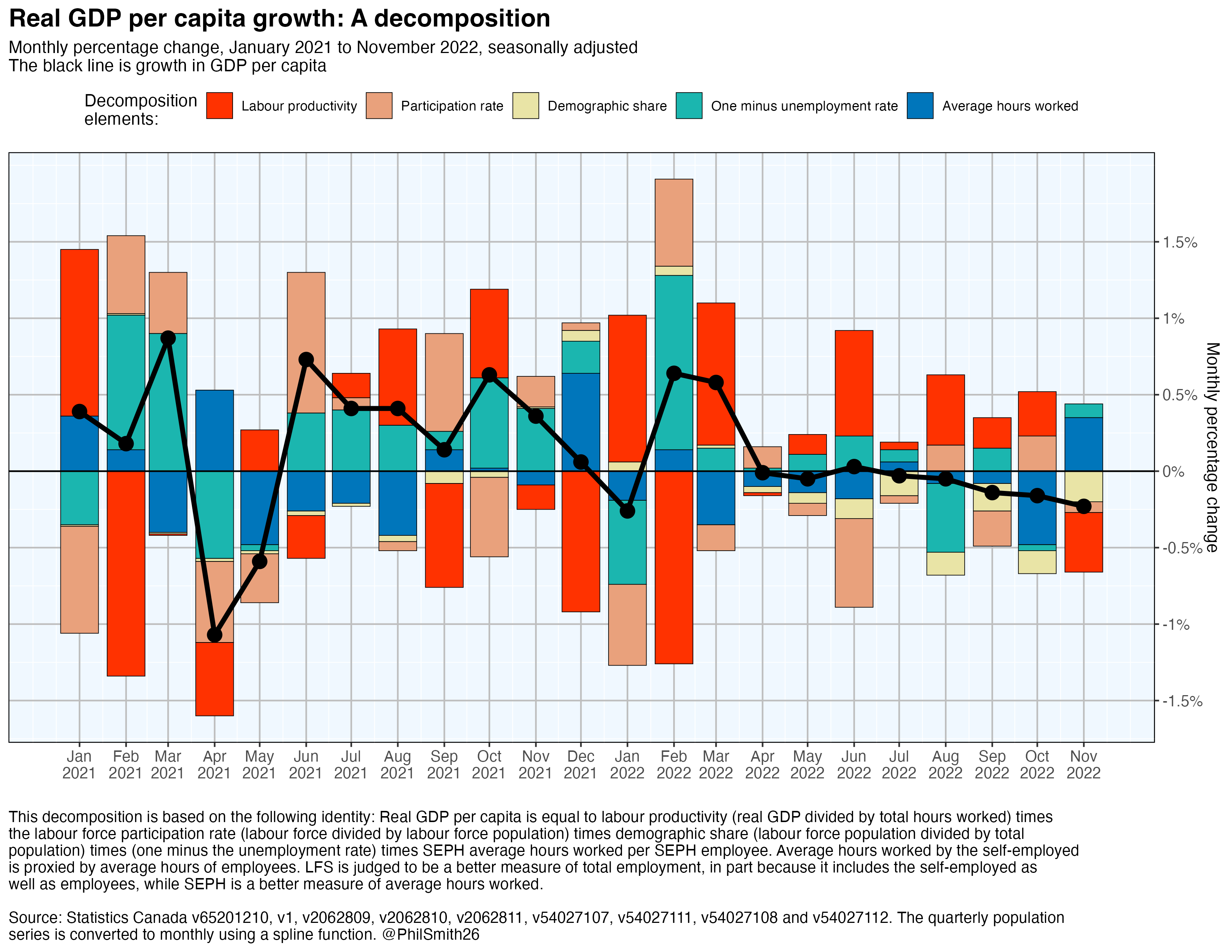Canadians are experiencing a “personal recession” as our standard of living declines. This is obscured in the raw numbers by our expanding population and increasing government spending, but the impact is still felt on a personal level – which is the only level that really matters for measuring whether a country is actually improving or not.
Survey after survey shows Canadians saying the country is in a recession, despite the nation not technically meeting that definition (two consecutive quarters of negative GDP growth).
What explains this discrepancy?
Well, the fact is that on a personal level Canadians are worse off.
Wages aren’t keeping up with inflation, so the purchasing power of the average Canadian is declining every month.
Since declining purchasing power represents a real decline in our wealth, it feels very much like negative ‘growth’ in our own lives.
And that is exactly what it is.
Because money is inflationary by nature – since the money supply is always trending towards expansion – we have to measure the relationship between wages and prices to get a sense of whether we are actually becoming wealthier or not.
For example, if wages rise by 5% but inflation is 7%, than the average person is 2% points worse off.
That would be the same as wages staying the same but prices going up 2% points. In that case, everyone would intuitively understand that they are poorer, but the inflationary nature of fiat currency obscures this to an extent.
Hence why people feel angry when their pay goes up yet they feel poorer than before.
Governments love this, because the confusion makes it easier for them to pin the blame for inflation on corporations – as both the Liberals and NDP have tried to do.
But that’s not the only way in which the truly dire state of Canada’s economy is being obscured.
Following the release of numbers showing declining GDP growth in Q4 of 2022, it was noted that Canada’s per capita income – which is the most accurate measure of how individual Canadians are actually doing – was not improving at all. And, the little ‘growth’ there has been in the economy over the past few quarters has been largely due to expanded government spending:
“Over half of 🇨🇦’s GDP growth in November was public administration, primarily the Fed according to Stat Can.”
https://twitter.com/StephenPunwasi/status/1620421593318182920
“Remember people, GDP per capita is what matters. Don’t get gaslit by rankings looking at the GDP only (influenced by large numbers of immigrants coming in).”
Remember people, GDP per capita is what matters. Don't get gaslit by rankings looking at the GDP only (influenced by large numbers of immigrants coming in). https://t.co/gb8pMrYBJB
— Bryan Breguet (@2closetocall) January 31, 2023
https://twitter.com/PhilSmith26/status/1620420887454556161
“StatCan reported today that real GDP rose 0.1% in November. Nevertheless the pattern of decline in real GDP per capita, under way since April 2022, continued. The main cause in November was a drop in labour productivity, following six months of increase.”

A personal recession
Let’s consider a little thought experiment:
Say Canada’s population doubled in the next year.
Imagine we brought in so many people from around the world each day that in a years time we are at about 76 million people in a years time.
Would our GDP be larger?
Certainly.
Would our economy have ‘grown’ in raw terms?
Definitely.
And would there be more overall ‘economic activity’?
For sure.
The only problem is that our infrastructure would be completely overstretched, our social programs would have have completely crumbled, and – since there would be no way to double our level of production in a year – we would all be drastically poorer on a per capita basis.
This is obviously an exaggerated scenario, but it goes to show that what really matters is whether we are increasing our level of productivity – whether our per capita GDP is going up.
‘Growth’ based only on population increases and borrowed money being thrown into the government bureaucracy with reckless abandon is not sustainable and can’t improve our standard of living.
Canadians are thus indeed right to think that we are – in personal terms – already facing a recession, because most individual Canadians are losing purchasing power and are watching their standard of living erode.
And so, when Canada enters an ‘official’ recession, it will simply indicate that the decline of our living standards has deepened.
Spencer Fernando
